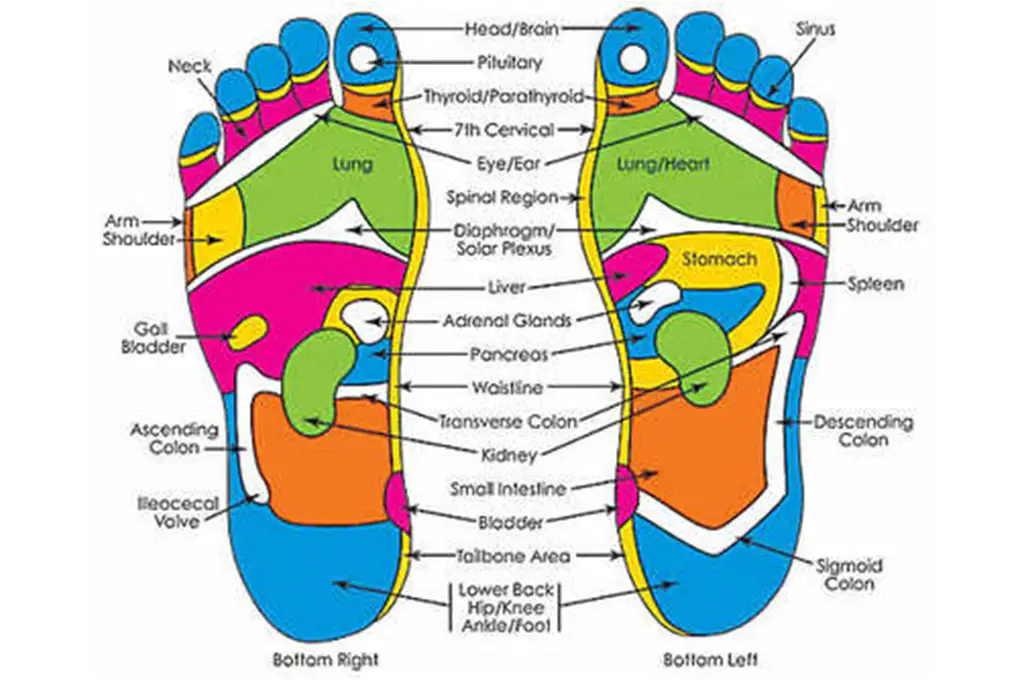
Reflexology
Reflexology, often called reflexology massage, is a holistic therapy that involves applying pressure to specific points on the feet, hands, and ears to promote relaxation and improve overall well-being. The practice is rooted in ancient healing traditions and has been embraced in modern wellness for its ability to reduce stress, support circulation, and promote balance in the body.
Though reflexology is not a substitute for medical care, many people find it a valuable complementary therapy for a range of physical and emotional conditions.
Book A Mobile MassageWhat is Reflexology?
Reflexology is based on the concept that areas of the feet, hands, and ears mirror the body’s internal systems. By applying precise pressure to these zones, reflexologists aim to stimulate energy pathways, promote natural healing, and restore homeostasis (balance).
The origins of reflexology can be traced to ancient Egypt, China, and India, but modern reflexology was developed in the early 20th century by American physician Dr. William H. Fitzgerald, who mapped "zone therapy" across the body. Later, Eunice Ingham refined these ideas into the foot maps commonly used today.
Unlike a traditional massage that targets muscles and soft tissues, reflexology works through nerve endings and energy meridians to affect internal body functions.
Sleep Better. Stress Less. Feel Grounded.What are the benefits of reflexology
While more research is still needed, several studies and anecdotal evidence suggest that reflexology may offer a wide range of benefits:
Reflexology maybe be a useful in reducing stress and anxiety, as it stimulates the body's natural healing mechanisms and promotes relaxation. Studies have show reduction in anxiety of those undergoing surgery as well as postmenopausal women. (Hudson et al., 2015, Williamson et al., 2002)
Stimulating pressure points is believed to increase blood flow and has been shown to increase lymphatic movement, assisting the body in the removal of waste and toxins. (Whatley et al., 2015, Sec. 14)
While more research is needed, some studies suggest that reflexology can help reduce pain intensity and improve quality of life in patients with chronic pain conditions, such as fibromyalgia and arthritis (Young et al., 2019). Reflexology may also help reduce pain and anxiety in patients undergoing medical procedures, such as surgery and chemotherapy (Callender et al., 2020).
Clients often report better sleep after reflexology sessions. By stimulating relaxation and calming the nervous system, reflexology may help address insomnia and improve sleep duration. (Huang HC et al., 2021)
Frequently Asked Questions About Reflexology
Studies and meta-analysis have shown reflexology to be beneficial in reducing pain, improving sleep quality, and promoting relaxation. It can also help with muscle tension, soreness, and anxiety.**
**Reflexology is not a substitute for medical care and evidence presented here is not a substitute for medical advice. Overview of some studies regarding the benefits of reflexology are from the University of Minnesota (What Does Research Say About Reflexology).
Most people find reflexology sessions to be very soothing and relaxing. Reflexology has even been used as a safe non-invasive complementary therapy for those undergoing chemotherapy.(Grant et al., 2020)
